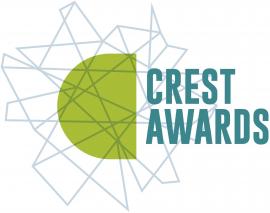- View more resources from this publisher
 CREST Awards
CREST Awards
CREST Awards: Bronze
CREST Bronze Awards engage and inspire a wide range of students, and introduce them to the language and methods of project work. The flexible framework can be adapted for students of different ages and abilities.
Bronze projects:
• Involve a minimum of 10 hours of work on one project area
• Use scientific and/or technical knowledge appropriate to students aged 11 to 14
• Students share their project outcomes with their peers (e.g. display, assembly, poster)
• Have active support from an educator: guiding students but allowing them to make decisions for themselves, reviewing progress regularly and supporting planning to maintain the pace of progress
Download the Teacher’s guide here: http://www.crestawards.org/site-content/uploads/2016/10/CREST_Bronze_teacher_guide.pdf
You will need to register your students through the Crest Award website: http://www.crestawards.org/
Resources
Filter
Crest bronze award: Monitoring acid rain
In this Crest Award accredited project, students monitor levels of atmospheric sulfur dioxide and rainfall acidity in the school grounds. Suggested investigations include:
- Investigate various methods of measuring acidities between pH4 and pH7, to decide which method is most accurate.
- Compare...
Bronze award: design and make a wooden pendant
In this project students' goal is to design and make a wooden pendant necklace for a friend. They will cut and shape wood to make the pendant and look at different ways of colouring it. Students will also decide which material to use for the necklace chain.
Who is the fittest in your class?
In this project, students measure the baseline level of fitness of a group of volunteers by recording how long it takes for their pulse rate to return to normal after exercise.
Make your own fizzy drink
In this project students make their own additive-free fizzy drink using yeast and compare the homemade fizzy drink to fizzy drinks you can buy in the shops. Curriculum links include respiration, fermentation, microbes, pH





